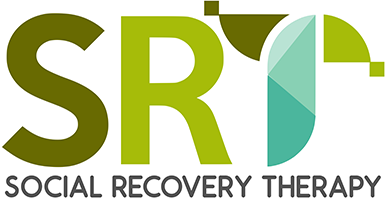Social recovery therapy: a treatment manual
David Fowler, Joanne Hodgekins, Clio Berry, Timothy Clarke, Jasper Palmier-Claus, Catarina Sacadura, Adam Graham, Christine Lowen, Ann Steele, Katherine Pugh, Samantha Fraser, Mike Fitzsimmons and Paul French
Abstract
Social Recovery Therapy is an individual psychosocial therapy developed for people with psychosis. The therapy aims to improve social recovery through increasing the amount of time individuals spend in meaningful structured activity. Social Recovery Therapy draws on our model of social disability arising as functional patterns of withdrawal in response to early socio-emotional difficulties and compounded by low hopefulness, self-agency and motivation. The core components of Social Recovery Therapy include using an assertive outreach approach to promote a positive therapeutic relationship, with the focus of the intervention on using active behavioural work conducted outside the clinical room and promoting hope, values, meaning, and positive schema. The therapy draws on traditional Cognitive Behavioural Therapy techniques but differs with respect to the increased use of behavioural and multi-systemic work, the focus on the development of hopefulness and positive self, and the inclusion of elements of case management and supported employment. Our treatment trials provide evidence for the therapy leading to clinically meaningful increases in structured activity for individuals experiencing first episode and longer-term psychosis. In this paper, we present the core intervention components with examples in order to facilitate evaluation and implementation of the approach.

No Comments
Sorry, the comment form is closed at this time.